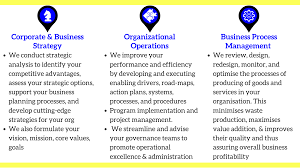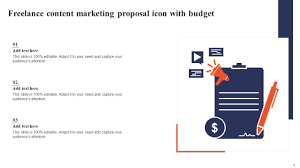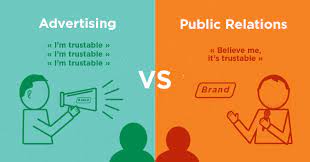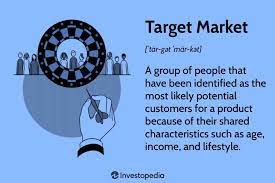Navigating Success: Unleashing the Potential of Business Strategy Consulting Services
Business Strategy Consulting Services: Unlocking Growth and Success
In today’s rapidly changing business landscape, having a well-defined and effective strategy is crucial for the success of any organization. However, developing a comprehensive and actionable business strategy can be a challenging task that requires expertise, experience, and an objective perspective. This is where business strategy consulting services come into play.
Business strategy consulting services offer valuable insights, guidance, and support to businesses seeking to enhance their competitive advantage, drive growth, and achieve long-term success. These services are provided by experienced professionals who have a deep understanding of various industries and possess the ability to analyze complex business environments.
One of the primary benefits of engaging with business strategy consultants is their fresh perspective. Often, when running day-to-day operations, businesses can become entrenched in their existing processes and lose sight of the bigger picture. Consultants bring an external viewpoint that can identify blind spots, untapped opportunities, and potential risks that may have been overlooked.
Business strategy consultants employ a systematic approach to assess the current state of a company and its market position. They conduct thorough analyses of internal operations, market dynamics, customer behavior, industry trends, and competition. This rigorous examination helps identify areas for improvement and develop strategies that align with the organization’s goals.
Moreover, consultants work closely with key stakeholders within the company to understand their aspirations and challenges. They facilitate collaborative workshops and discussions to gather valuable insights from employees at all levels. By involving employees in the strategic planning process, consultants foster a sense of ownership and commitment towards implementing new strategies.
Once the analysis is complete, business strategy consultants develop tailored recommendations that address specific pain points or capitalize on growth opportunities. These recommendations encompass various aspects such as organizational structure, operational efficiency improvements, marketing strategies, product development initiatives, talent management practices, or even mergers and acquisitions.
However, it doesn’t stop at just providing recommendations; business strategy consultants also assist in implementing these strategies effectively. They work side by side with the organization’s leadership team to ensure smooth execution, monitor progress, and make necessary adjustments along the way. Their objective guidance and support enable businesses to navigate through challenges and stay on track towards achieving their strategic objectives.
Another significant advantage of engaging with business strategy consultants is their access to a vast network of industry experts and best practices. Consultants bring in-depth knowledge of successful strategies implemented across various sectors, allowing businesses to leverage proven methodologies and avoid reinventing the wheel.
Business strategy consulting services are not limited to large corporations or specific industries. They cater to organizations of all sizes, from startups looking to establish a strong foundation for growth, to established companies seeking to pivot or expand into new markets. The expertise provided by consultants is adaptable and scalable, ensuring that the strategies developed align with the unique needs and resources of each client.
In conclusion, business strategy consulting services play a vital role in helping businesses unlock growth and achieve long-term success. With their objective perspective, extensive industry knowledge, and systematic approach, consultants provide invaluable insights that enable organizations to develop robust strategies, implement them effectively, and navigate through challenges. By engaging with business strategy consultants, companies can gain a competitive edge in today’s dynamic business environment.
Frequently Asked Questions: Business Strategy Consulting Services in the UK
- What is business strategy consulting?
- How can a strategy consultant help my business?
- What services do strategy consultants offer?
- How much does a business strategy consultant cost?
- What are the benefits of hiring a business strategy consultant?
- How do I choose the best business strategy consultant for my needs?
- What qualifications should I look for in a business strategy consultant?
- Are there any risks associated with hiring a business strategy consultant?
- How long does it take to develop an effective business strategy plan with a consultant?
What is business strategy consulting?
Business strategy consulting is a specialized service offered by professionals who have expertise in analyzing business operations, identifying challenges, and developing strategic plans to help organizations achieve their goals. Business strategy consultants work closely with companies to assess their current state, understand their objectives, and provide actionable recommendations to improve performance, competitiveness, and overall success.
The primary focus of business strategy consulting is to assist businesses in formulating effective strategies that align with their mission, vision, and long-term objectives. Consultants bring an external perspective and deep industry knowledge to the table, enabling them to identify opportunities for growth, address operational inefficiencies, mitigate risks, and enhance overall business performance.
Business strategy consultants employ a systematic approach to analyze various aspects of a company’s operations. This may include evaluating internal processes, assessing market dynamics and trends, conducting competitor analysis, examining customer behavior and preferences, and reviewing financial performance. By conducting these analyses, consultants gain a comprehensive understanding of the organization’s strengths, weaknesses, opportunities, and threats.
Based on their findings from the analysis phase, business strategy consultants develop tailored recommendations for the organization. These recommendations may involve changes in organizational structure or culture, improvements in operational efficiency or supply chain management practices, development of new products or services, expansion into new markets or customer segments, or even strategic partnerships or mergers and acquisitions.
Furthermore, business strategy consultants play a crucial role in facilitating the implementation of recommended strategies. They work closely with key stakeholders within the organization to ensure that the strategic initiatives are effectively executed. Consultants provide guidance on project management methodologies and help monitor progress towards achieving desired outcomes. They also assist in making necessary adjustments along the way based on evolving market conditions or internal dynamics.
Business strategy consulting is not limited to specific industries or company sizes. Consultants cater to a wide range of organizations including startups looking for guidance on establishing a strong foundation for growth as well as established companies seeking assistance with strategic pivots or expansions.
In summary, business strategy consulting involves working closely with organizations to analyze their current state, develop tailored recommendations, and assist in implementing strategic initiatives. By leveraging their expertise and industry knowledge, business strategy consultants help companies navigate challenges, capitalize on opportunities, and achieve long-term success.
How can a strategy consultant help my business?
A strategy consultant can provide valuable assistance to your business in several ways:
- Objective Perspective: A strategy consultant brings an external viewpoint and objectivity to your business. They can assess your organization’s strengths, weaknesses, opportunities, and threats without being influenced by internal biases or preconceptions. This fresh perspective helps identify blind spots, untapped potential, and areas for improvement.
- Industry Expertise: Strategy consultants have extensive knowledge and experience across various industries. They stay up-to-date with market trends, emerging technologies, and best practices. By leveraging their industry expertise, consultants can provide insights into the competitive landscape, customer behavior, and industry dynamics that can inform your business strategy.
- Strategic Planning: Consultants excel at developing comprehensive strategic plans tailored to your business goals. They conduct thorough analyses of your internal operations, market position, and competition to identify growth opportunities and mitigate risks. With their expertise in strategic planning methodologies, they help you define clear objectives, set actionable goals, and formulate a roadmap for success.
- Problem Solving: Strategy consultants are skilled problem solvers who excel at tackling complex business challenges. Whether it’s addressing declining sales, optimizing operational efficiency, or exploring new markets, they employ analytical frameworks and data-driven approaches to identify root causes and develop effective solutions.
- Implementation Support: Strategy consultants don’t just stop at providing recommendations; they also assist in implementing strategies effectively. They work closely with your leadership team to ensure smooth execution of the plan, monitor progress against milestones, and make necessary adjustments along the way. Their support helps you navigate through challenges during implementation.
- Change Management: Implementing new strategies often requires organizational change. Strategy consultants specialize in change management by helping you communicate the rationale behind strategic decisions to employees effectively. They assist in creating buy-in among stakeholders at all levels of the organization through workshops, training programs, and clear communication plans.
- Access to Networks: Strategy consultants have extensive networks of industry experts and best practices. They can connect you with relevant resources, potential partners, or subject matter experts to support your strategic initiatives. Leveraging their network can provide valuable insights and accelerate your business growth.
- Continuous Learning: Strategy consultants are committed to continuous learning and staying ahead of industry trends. They bring the latest knowledge and insights to your business, ensuring that your strategies remain relevant in a rapidly changing environment. Their ability to adapt and innovate helps you stay competitive.
Engaging a strategy consultant can bring significant benefits to your business by providing objective guidance, industry expertise, strategic planning support, problem-solving capabilities, implementation assistance, change management expertise, access to networks, and continuous learning opportunities. By partnering with a strategy consultant, you can enhance your competitive advantage and achieve long-term success.
What services do strategy consultants offer?
Strategy consultants offer a range of services designed to help businesses develop and implement effective strategies. Some of the key services provided by strategy consultants include:
- Strategic Planning: Consultants work closely with businesses to develop comprehensive strategic plans that align with their goals and objectives. This involves conducting in-depth analyses of internal and external factors, identifying growth opportunities, and formulating actionable strategies.
- Market Research and Analysis: Strategy consultants conduct thorough market research to understand industry trends, customer behavior, competitive landscape, and market dynamics. They analyze data to identify market gaps, potential risks, and opportunities for growth.
- Competitive Analysis: Consultants assess the strengths and weaknesses of competitors to identify areas where businesses can gain a competitive advantage. They provide insights on competitor strategies, positioning, pricing models, product offerings, and target markets.
- Business Model Evaluation: Consultants evaluate existing business models to identify areas for improvement or potential disruptions. They help businesses assess their value proposition, revenue streams, cost structure, and customer segments to optimize their business model.
- Growth Strategy Development: Strategy consultants assist businesses in developing growth strategies that enable them to expand into new markets or diversify their product/service offerings. This may involve identifying potential partnerships or acquisition targets.
- Operational Efficiency Improvement: Consultants analyze internal processes and operations to identify inefficiencies and bottlenecks that hinder productivity or profitability. They provide recommendations on streamlining operations, optimizing resource allocation, implementing technology solutions, or improving supply chain management.
- Organizational Design and Restructuring: Consultants assist businesses in designing effective organizational structures that support their strategic objectives. They provide guidance on roles and responsibilities, reporting lines, decision-making processes, talent management practices, and performance measurement systems.
- Change Management: Strategy consultants support businesses through periods of change by developing change management plans that minimize disruption while maximizing employee engagement and buy-in. They provide guidance on communication strategies, training programs, and stakeholder engagement initiatives.
- Performance Measurement and KPI Development: Consultants help businesses establish key performance indicators (KPIs) that align with their strategic goals. They develop measurement frameworks and dashboards to track progress, identify areas of improvement, and ensure accountability.
- Risk Assessment and Management: Strategy consultants assess potential risks and develop risk mitigation strategies to protect businesses from unforeseen challenges. They help businesses identify vulnerabilities, implement risk management frameworks, and develop contingency plans.
It’s important to note that the specific services offered by strategy consultants may vary based on the consulting firm’s expertise, industry focus, and client requirements. Consultants tailor their services to meet the unique needs of each business they work with, providing customized solutions for strategic success.
How much does a business strategy consultant cost?
The cost of hiring a business strategy consultant can vary depending on several factors, including the consultant’s level of experience, expertise, reputation, and the scope of the project or engagement. Additionally, geographical location and industry specialization may also influence the cost.
Business strategy consultants typically charge based on an hourly rate or project-based fees. Hourly rates can range from £100 to £500 or more per hour, depending on the consultant’s qualifications and track record. For longer-term projects or comprehensive strategic planning engagements, consultants may offer a fixed fee based on the estimated duration and complexity of the work.
It’s important to note that while hiring a business strategy consultant involves an investment, it is often seen as a worthwhile expense due to the potential return on investment (ROI) that can be achieved through improved business performance, increased revenue, cost savings, and enhanced competitive advantage.
When considering the cost of hiring a business strategy consultant, it is essential to evaluate their expertise and track record in delivering tangible results for similar projects. It’s also advisable to have clear expectations and objectives in mind before engaging with a consultant to ensure that their services align with your specific needs.
Ultimately, the cost of hiring a business strategy consultant should be viewed in relation to the value they can bring to your organization. A skilled consultant can provide valuable insights, guidance, and strategic direction that can help drive growth and long-term success for your business.
What are the benefits of hiring a business strategy consultant?
Hiring a business strategy consultant can provide numerous benefits to an organization. Here are some key advantages:
- Objective Perspective: Consultants bring an external viewpoint and fresh perspective to the table. They are not influenced by internal biases or preconceived notions, allowing them to objectively assess the organization’s strengths, weaknesses, opportunities, and threats. This objectivity helps identify blind spots and uncover new possibilities that may have been overlooked.
- Industry Expertise: Business strategy consultants possess deep knowledge and experience across various industries. They stay updated on market trends, emerging technologies, and best practices. This expertise enables them to provide valuable insights and recommendations specific to the industry in which the organization operates.
- Specialized Skills: Consultants often specialize in specific areas such as market research, financial analysis, process improvement, or change management. By leveraging their specialized skills, organizations can tap into a wealth of knowledge that may not be available internally. This allows for a more comprehensive approach to addressing complex business challenges.
- Time and Resource Efficiency: Engaging with a business strategy consultant saves valuable time and resources for the organization. Consultants are experienced professionals who can quickly assess the situation, conduct in-depth analyses, develop strategies, and implement them effectively. This frees up internal teams to focus on their core responsibilities without being overwhelmed by additional projects.
- Access to Best Practices: Business strategy consultants have exposure to a wide range of organizations and industries. They bring with them insights into successful strategies implemented elsewhere, along with best practices that have proven effective in similar situations. This access to external knowledge helps organizations avoid pitfalls and adopt proven methodologies for better outcomes.
- Change Management Support: Implementing new strategies often requires significant changes within an organization. Business strategy consultants provide guidance throughout the change management process by helping leaders communicate effectively, address employee concerns, and ensure smooth transitions. Their expertise in managing change minimizes disruptions and maximizes adoption rates.
- Scalability and Flexibility: Business strategy consultants offer scalable services that can be tailored to the specific needs of an organization. Whether it’s a short-term project or ongoing support, consultants can adapt their services to align with the organization’s goals and resources. This flexibility allows businesses to engage consultants as needed, without incurring long-term commitments.
- Risk Mitigation: Business decisions come with inherent risks. Consultants help organizations identify and mitigate these risks by conducting thorough analyses, scenario planning, and developing contingency strategies. Their expertise in risk management ensures that organizations make informed decisions with a clear understanding of potential outcomes.
In summary, hiring a business strategy consultant provides organizations with an objective perspective, industry expertise, specialized skills, time efficiency, access to best practices, change management support, scalability, flexibility, and risk mitigation. These benefits enable businesses to navigate challenges effectively, unlock growth opportunities, and achieve long-term success in a competitive business environment.
How do I choose the best business strategy consultant for my needs?
Choosing the best business strategy consultant for your needs requires careful consideration and evaluation. Here are some key factors to consider when selecting a consultant:
- Expertise and Experience: Look for consultants who have relevant expertise and experience in your industry or specific area of focus. Their knowledge of industry trends, challenges, and best practices will be invaluable in developing effective strategies.
- Track Record: Review the consultant’s track record and success stories. Look for evidence of their ability to deliver results and drive growth for their clients. Client testimonials or case studies can provide insights into their past achievements.
- Understanding of Your Business: A good consultant should take the time to understand your business, its unique challenges, goals, and culture. They should ask insightful questions and demonstrate a genuine interest in your organization.
- Collaborative Approach: Consider consultants who value collaboration and partnership. They should be willing to work closely with your team, involve key stakeholders, and listen to different perspectives. A collaborative approach ensures that the strategy developed is tailored to your specific needs.
- Communication Skills: Effective communication is essential in any consulting engagement. Ensure that the consultant has strong communication skills, both verbal and written, as they will need to convey complex ideas clearly and concisely.
- Problem-Solving Abilities: Look for consultants who possess strong analytical skills and problem-solving abilities. They should be able to identify root causes of issues, develop innovative solutions, and adapt strategies as needed.
- Flexibility and Adaptability: Business environments are constantly evolving, so it’s crucial to choose a consultant who is adaptable to change. They should be able to adjust strategies based on emerging trends or unforeseen circumstances.
- Cost-Effectiveness: While cost is an important consideration, it should not be the sole determining factor when choosing a consultant. Focus on the value they can provide rather than solely on price.
- Compatibility: Building a successful relationship with a consultant requires compatibility and trust. Assess whether their working style, values, and approach align with your organization’s culture and objectives.
- References and Recommendations: Seek references or recommendations from trusted sources, such as colleagues, industry associations, or professional networks. Hearing about others’ experiences can provide valuable insights to aid your decision-making process.
Remember to conduct thorough due diligence before finalizing your choice. Consider meeting with potential consultants for an initial consultation or request a proposal outlining their approach to ensure it aligns with your expectations. By carefully evaluating these factors, you can select the best business strategy consultant who will help drive your organization towards success.
What qualifications should I look for in a business strategy consultant?
When searching for a business strategy consultant, it is important to consider several qualifications to ensure you find the right fit for your organization’s needs. Here are some key qualifications to look for:
- Expertise and Experience: A good business strategy consultant should have a strong background in strategic planning and consulting. Look for consultants with relevant experience in your industry or similar sectors. Their expertise should encompass various aspects of business strategy, including market analysis, competitive positioning, organizational design, and operational efficiency.
- Proven Track Record: Evaluate the consultant’s track record by examining their past projects and client testimonials. Look for evidence of successful strategy implementations and measurable results achieved through their guidance. A consultant with a track record of delivering tangible outcomes demonstrates their ability to drive meaningful change.
- Analytical Skills: Business strategy consultants need strong analytical skills to assess complex business environments, identify trends, interpret data, and make informed recommendations. Look for individuals who can demonstrate their ability to gather and analyze relevant information to support strategic decision-making.
- Problem-Solving Abilities: Effective consultants possess excellent problem-solving skills. They should be able to understand complex challenges, break them down into manageable components, and develop innovative solutions that align with your organization’s goals.
- Communication Skills: Communication is vital when working with a consultant as they will be collaborating closely with your team members at all levels of the organization. Look for consultants who can effectively convey complex ideas in a clear and concise manner, both verbally and in written reports or presentations.
- Adaptability and Flexibility: The business landscape is constantly evolving, so it is crucial that your consultant can adapt to changing circumstances and adjust strategies accordingly. Seek individuals who demonstrate agility in their approach and are open-minded when considering new ideas or feedback.
- Collaborative Approach: A successful business strategy consultant should be able to work collaboratively with your team members throughout the engagement process. They should listen actively, involve key stakeholders, and foster a sense of ownership and commitment among employees.
- Professionalism and Ethics: Look for consultants who uphold high professional standards and adhere to ethical practices. They should prioritize confidentiality, maintain integrity, and act in the best interests of your organization.
- Continuous Learning: The business landscape is dynamic, so it is essential to find a consultant who is committed to continuous learning and staying updated on industry trends. Look for individuals who invest in their professional development through certifications, memberships in industry associations, or attending relevant conferences.
- Compatibility and Chemistry: Lastly, consider the compatibility between your organization’s culture and the consultant’s working style. A good fit will facilitate effective collaboration and build strong working relationships.
By considering these qualifications, you can find a business strategy consultant who possesses the necessary skills, experience, and mindset to help your organization develop and implement successful strategies for growth and success.
Are there any risks associated with hiring a business strategy consultant?
While hiring a business strategy consultant can bring numerous benefits, it is essential to be aware of potential risks that may arise during the engagement. Here are a few considerations:
- Cost: Engaging with a business strategy consultant involves financial investment. Consultants typically charge fees based on their expertise and the scope of the project. It is crucial to assess whether the potential benefits outweigh the costs and ensure that the budget aligns with the expected outcomes.
- Dependency: Organizations may become overly reliant on consultants, leading to a lack of internal capability development. While consultants provide valuable insights and support, it is important for businesses to build their own strategic capabilities over time. This ensures long-term sustainability and reduces dependence on external resources.
- Cultural Fit: Business strategy consultants bring an external perspective, which may clash with existing company culture or management styles. It is crucial to find a consultant who understands and respects the organization’s values, working style, and goals. A lack of alignment in these areas could hinder effective collaboration and implementation.
- Implementation Challenges: Developing a solid strategy is only part of the equation; successful execution is equally important. However, implementing new strategies can face resistance or encounter unforeseen obstacles within an organization. It is essential to have a clear plan for execution and change management to overcome these challenges effectively.
- Confidentiality Concerns: Business strategy consultants often gain access to sensitive information about an organization’s operations, finances, or future plans during their engagement. It is crucial to establish clear confidentiality agreements and trust in the consultant’s integrity to protect proprietary information.
- Limited Industry Knowledge: While business strategy consultants possess expertise in various industries, there might be instances where they lack specific knowledge about niche markets or unique industry dynamics. It is important to assess whether their experience aligns with your specific industry requirements.
To mitigate these risks, it is advisable for organizations considering hiring a business strategy consultant to conduct thorough due diligence before making a decision. This includes checking references, reviewing the consultant’s track record, and assessing their approach to collaboration and implementation. Clear communication and expectations setting from the outset can also help manage potential risks effectively.
Overall, while there are risks associated with hiring a business strategy consultant, they can be mitigated through careful selection, open communication, and a focus on building internal capabilities alongside the engagement. When done right, the benefits of working with a consultant can far outweigh the potential risks, leading to enhanced strategic outcomes and business success.
How long does it take to develop an effective business strategy plan with a consultant?
The time required to develop an effective business strategy plan with a consultant can vary depending on several factors, including the complexity of the organization, the scope of the project, and the level of involvement from key stakeholders.
Typically, the process of developing a business strategy plan involves several stages, such as initial assessments, data gathering and analysis, strategy formulation, recommendations development, and implementation planning. Each stage requires time for research, collaboration, and iteration.
For smaller organizations or specific projects, it may take a few weeks to a couple of months to develop a comprehensive business strategy plan. This timeline allows for thorough analysis and strategic thinking while maintaining efficiency.
On the other hand, larger organizations or more complex projects may require several months or even longer. The additional time is needed to account for extensive data collection and analysis processes, comprehensive stakeholder engagement sessions, and more intricate decision-making processes.
It’s important to note that developing an effective business strategy plan is not solely dependent on time but also on the quality of insights gathered during the process. Rushing through the strategic planning phase may compromise the depth and effectiveness of the resulting plan.
To ensure a smooth and timely process, it is crucial for organizations to establish clear communication channels with their chosen consultant. Regular meetings and feedback sessions help maintain momentum throughout each stage of development.
Ultimately, while there is no fixed timeframe that applies universally to every organization or project, investing sufficient time in developing an effective business strategy plan with a consultant is essential for maximizing its potential impact on long-term success.







